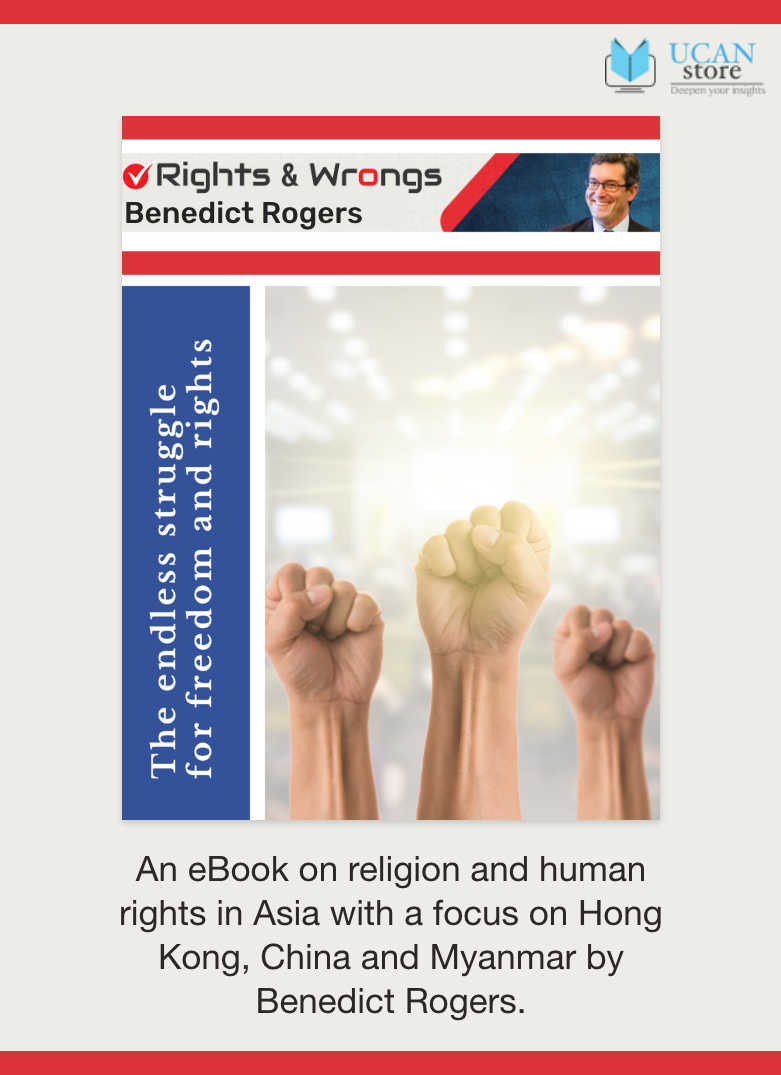
Digital communities offer a sense of connection and belonging, and are taking on the role of religion

Buddhist monks take part in 'Nagatoro Hi-Matsuri,' or fire walking festival, to pray for good health and safety in Nagatoro town, Saitama prefecture on March 5. In an increasingly secularized society, Japanese individuals are exploring alternative sources of meaning through digital communities that offer a sense of connection and belonging while taking on the role that religion once held. (Photo: AFP)
In recent years societies around the world have witnessed a growing secularization trend with a decline in religious affiliation and an increased emphasis on secular values. This shift has brought forth various challenges, especially in a country like Japan where the work-centric culture has long been known for its strong prominence of work in the lives of its citizens.
Where religious doctrines and dogmas no longer hold sway over people's lives, individuals are left to cope with the absence of a predefined purpose or meaning. This is particularly pronounced in the Land of the Rising Sun where the pursuit of career success and corporate loyalty often overshadows personal aspirations and self-reflection.
Many Japanese workers dedicate their lives to their jobs, but without a greater objective beyond being useful cogs in the machinery of society, they often feel a sense of emptiness and lack of fulfillment.
When work becomes the primary source of purpose, the boundaries between personal and professional lives blur, leading to excessive stress and burnout. Moreover, the relentless pursuit of professional success often results in neglecting other aspects of life, such as personal relationships, hobbies, and self-care. The lack of balance and holistic fulfillment can lead to feelings of isolation, disillusionment and ultimately depression.
Recently I happened to meet a woman whose job was specifically to try to bring back a life purpose to these individuals who have spent their entire adult lives pursuing a career without really focusing on a deeper, more personal purpose.
Once they achieve success in their career they often found themselves as an empty shell, devoid of any other meaningful goal. They call it an "adult self-innovation project," which is often done online.
What I learned is that particularly after the impact of Covid, people are found to be dissatisfied with their lives. Covid served, so to speak, as a catalyst for deep introspection, forcing individuals to contemplate their existence and search for meaning.
Perhaps, this is because people found themselves confined to their homes, with ample time for self-reflection and the opportunity to reconnect with their families.
"The simple act of engaging in religious practices creates a bond among individuals"
But for this woman, whose profession is to provide alternative priorities to these people through a process of self-reflection and questioning, this shift had already begun before Covid and the pandemic only intensified it.
In her previous role within a large corporation in Japan, she encountered numerous individuals who were unfulfilled, particularly senior employees who were unable to attain executive positions. Despite their dissatisfaction, they remained within their companies, working long hours without real gratification. Even though they possessed financial stability, they lacked something far more fulfilling: a meaning.
One of the main goals of the adult self-innovation project is to connect individuals. And if we think about it, this is a spin-off of one of the main features of practiced religion, i.e., a unique capacity to bring people together, foster a group spirit, and cultivate a sense of belonging.
The simple act of engaging in religious practices creates a bond among individuals, transcending social barriers and nurturing a shared sense of community. Religious communities in fact function as a support system for their members; they provide a network of individuals who offer support, compassion, and understanding. It is precisely this sense of solidarity and communal support that contributes to the well-being of all community members.
To address the challenges posed by a lack of purpose in a secularized society, individuals, particularly the Japanese workforce, need to explore alternative sources of meaning. This can involve investing in relationships and community engagement and exploring avenues for self-discovery and personal growth. By fostering a sense of purpose outside of work, individuals can achieve a more fulfilling life, reducing the risk of depression and other mental health issues.
And this is exactly what these new secular projects are trying to do. Filling the void left by traditional faith.
The advent of social media and online platforms has revolutionized how people connect and build communities. Online forums, social networking sites, and virtual interest groups enable individuals to find like-minded people and engage in discussions, collaborations, and shared activities.
These digital communities offer a sense of connection and belonging, irrespective of geographical boundaries, providing individuals with opportunities to exchange ideas, seek support, and form relationships. Ultimately, they take on the role that religion once held.
*The views expressed in this article are those of the author and do not necessarily reflect the official editorial position of UCA News.
Help us keep UCA News independent
The Church in Asia needs objective and independent journalism to speak the truth about the Church and the state.
With a network of professionally qualified journalists and editors across Asia, UCA News is just about meeting that need. But professionalism does not come cheap. We depend on you, our readers, to help maintain our independence and seek that truth.
A small donation of US$2 a month would make a big difference in our quest to achieve our goal.

Share your comments